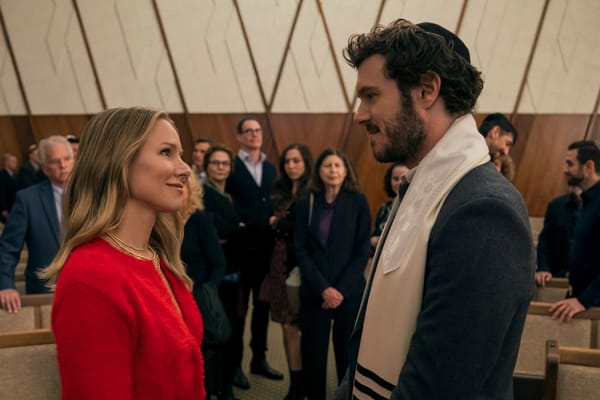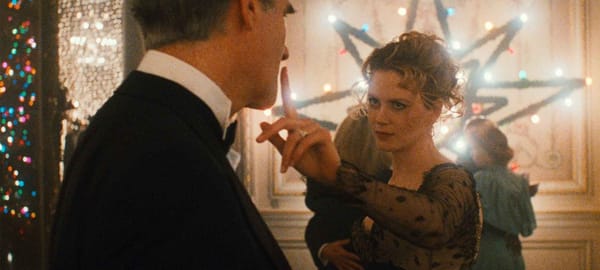What is Heretic about? Evil twins.
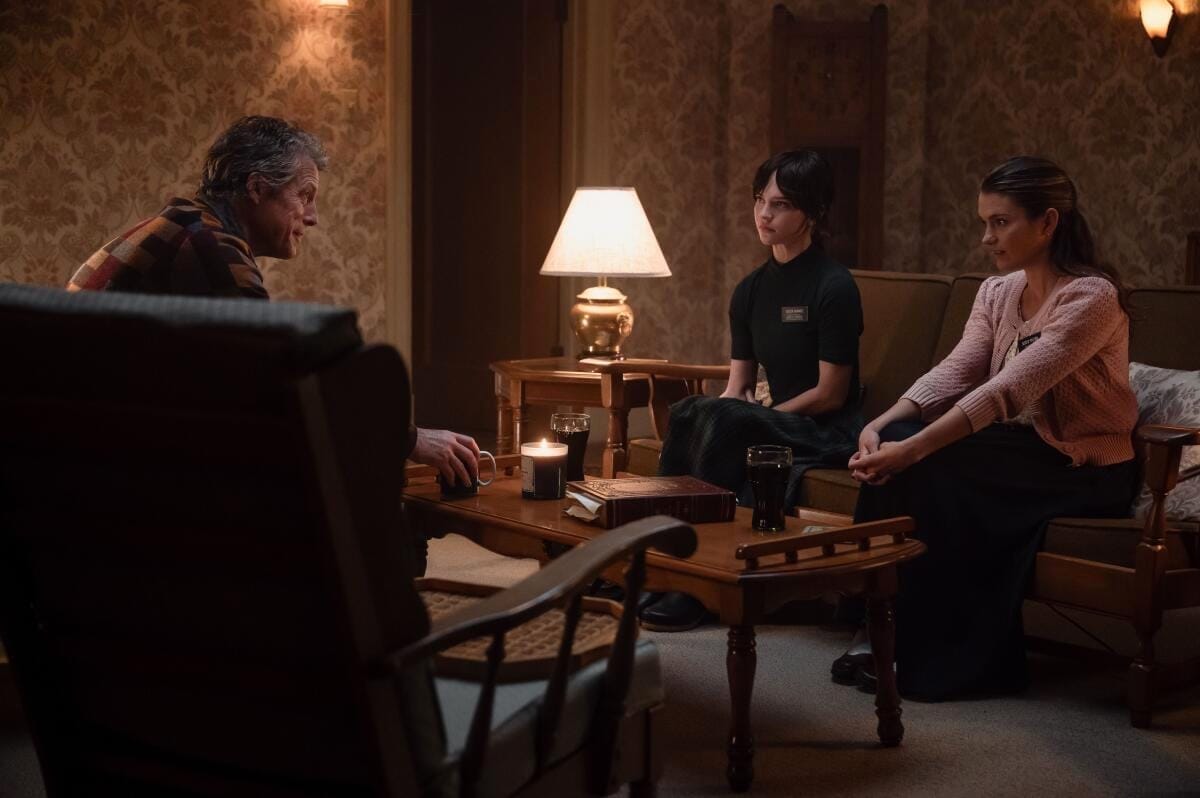
Heretic (written by Scott Beck & Bryan Woods) is a chamber horror film where two Mormon missionaries, Sister Barnes and Sister Paxton, are welcomed into the home of the inquisitive Mr. Reed to talk about religion. What they don’t realize is that they’re in for more of a deranged TED Talk than a conversation.
There’s a reason why the line, “We’re not so different, you and I,” is familiar enough to be a trope. It’s fun to play with character and audience expectations when a protagonist sees themself reflected in their enemy.
Their shadow self. Their fun-house mirror image. An evil twin.
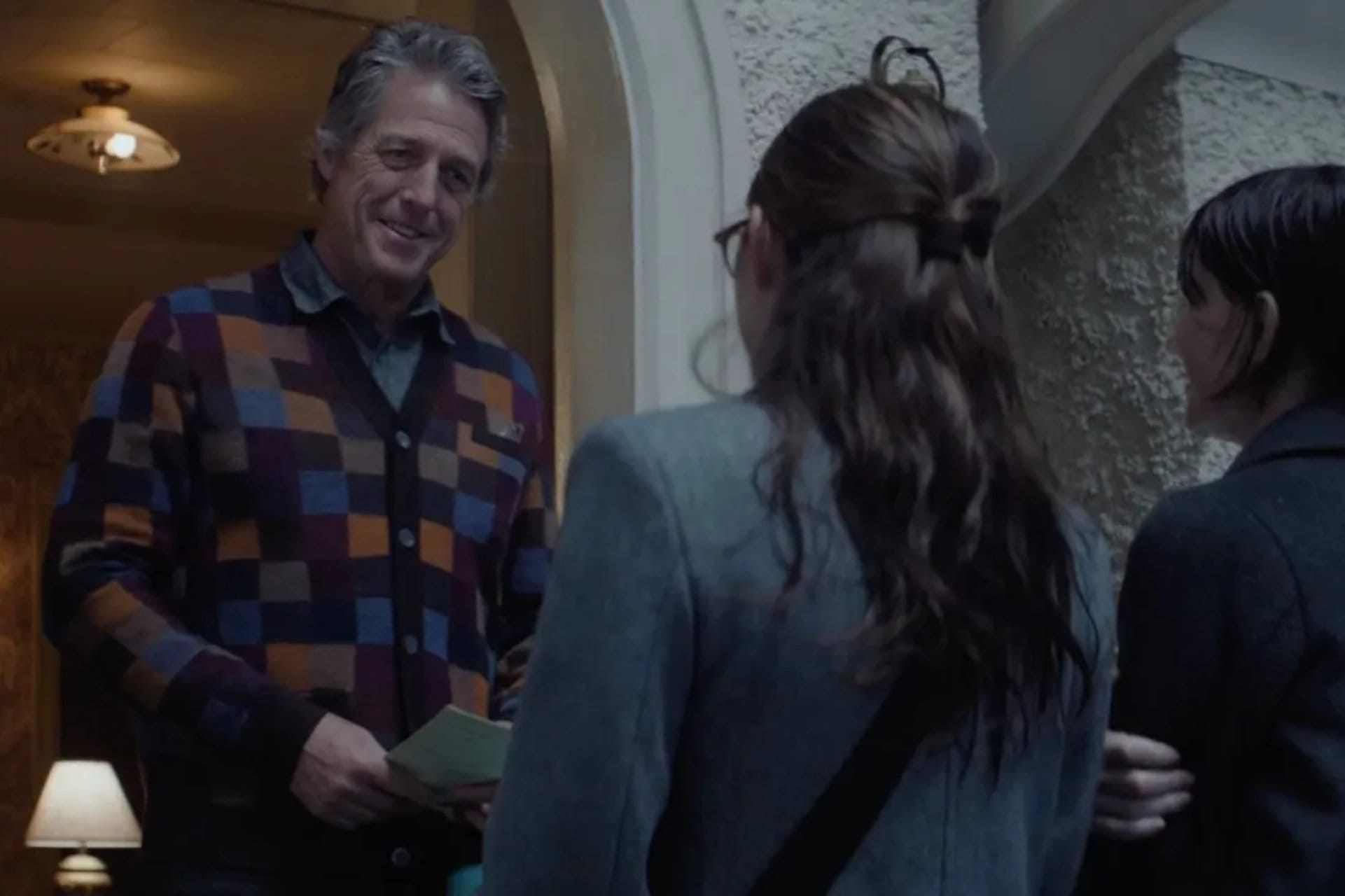
Writing the "Twin" part
“We should be more like you, Mr. Reed.”
– Sister Paxton
The audience sees red flags that should immediately keep Sisters Paxton and Barnes from stepping into Mr. Reed’s house. The rules of their mission don’t allow them to be alone inside with a man, and they do not see Mr. Reed’s wife or clear evidence she exists. He asks intrusive questions. So what keeps them from noticing they’re in danger until it’s too late?
Mr. Reed starts off their conversation inside by saying he believes “it is good to be religious.” He’s setting a tone of mutual appreciation, which he continues when talking about how rigorous study of different religions helped him feel closer to God. As evidence, he pulls out his own copy of the Book of Mormon, flagged with multiple colors of sticky notes. This prompts Sister Paxton’s awe and sense of finding a kindred spirit.
When they first knock on his door, Sister Paxton is eager about potentially getting her first baptism on her mission together with Sister Barnes. This is a visit with stakes, where she believes that there is a potential to fulfill her purpose and bring more people to the church. She even mentions how they’ve been told by their elders that when looking for converts, they should “prioritize other investigators.”
They see just enough of themselves in Mr. Reed to let down their guard and miss what should be some pretty clear signs to turn and run the other way.

Writing the "Evil" part
“Surface similarities can mask deep differences in their moral codes.”
-Writer Emergency Pack XL, #30 Evil Twin
Mr. Reed’s personality swings like a pendulum between awkwardly charming and gleeful edgelord. He offers refreshments to his guests, but brings them caffeinated cola as a provocation to see if they’ll drink it. Any time they mention that they’re not allowed to be alone inside with a man, Reed repeats that his wife is just in the other room. It’s both an attempt to mollify their concern, but also an attempt to get them to break one of their own rules and do what he wants.
Another moment this comes out is his questioning why the Mormon church has altered its historical approval of polygamy. He builds this up in a way that sounds like he’s trying to be proper and deferential to their sensibilities, but as the discussion moves on and he starts asserting that in his study of the religion that the divine revelation of polygamy by Joseph Smith could have been a Get Out of Jail Free card to absolve his personal infidelities.
He’s goading them to test their faith and their patience with him.
This playful tone with a serious purpose comes through most sharply in a monologue about religion and iterations. Using the examples of the different versions of Monopoly sold over the years, and the plagiarism lawsuits that suggest The Hollies wrote a song that Radiohead iterated on, and then Lana del Ray took it a step further.
It’s all part of his larger goal, which involves convincing Sisters Paxton and Barnes to concede to him that the one true religion that all others spring from is simply a need by one group of elites to control others.
The utility of writing an Evil Twin
An evil twin isn’t an exact opposite, but a reflection. The surface similarities are there, but something about them feels reversed.
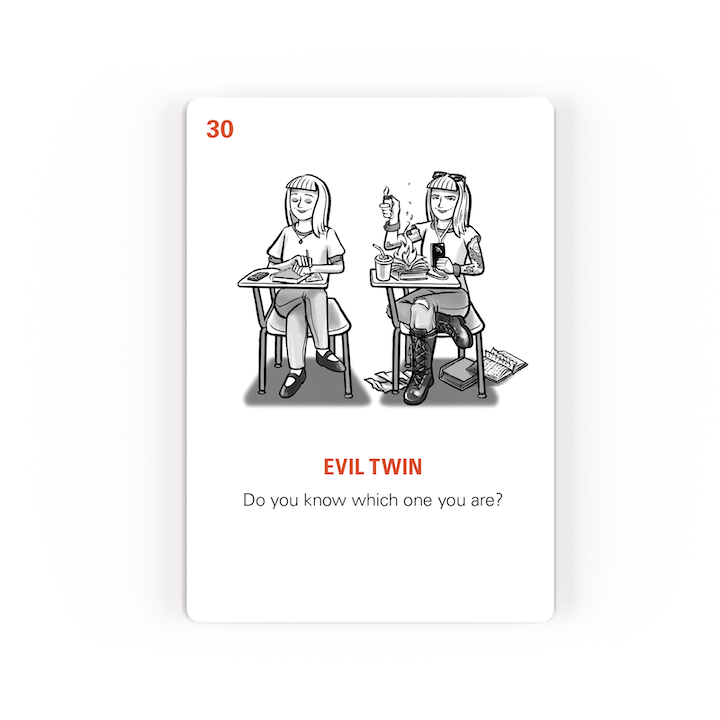
An exact opposite would be the people who ignore Barnes and Paxton when they try to strike up a conversation, or the young women who play a prank on Sister Paxton while making fun of Moromons and their “magic underwear.” The exact opposite of these two characters is someone without an interest in religion, or who openly mocks it.
Heretic doesn’t cast the protagonists and antagonist as total opposites. Mr. Reed is a reflection of what would happen to someone who was similar to Sisters Barnes and Paxton if their personality curdled. They struggle to get invited into other people’s houses to talk about religion, acting as cogs in the larger engine of a religion that predates them by centuries. On the flip side, Mr. Reed has turned his home into a church, filled it with disciples, and proselytizes the “one true faith” based on his personal observations.
In this way, the idea of the Evil Twin creates something tense and nuanced. The closer the two opposing sides are in their beliefs, the more plausible it is that one side could persuade the other. And that plausible tension creates a strong conflict for 111 minutes.
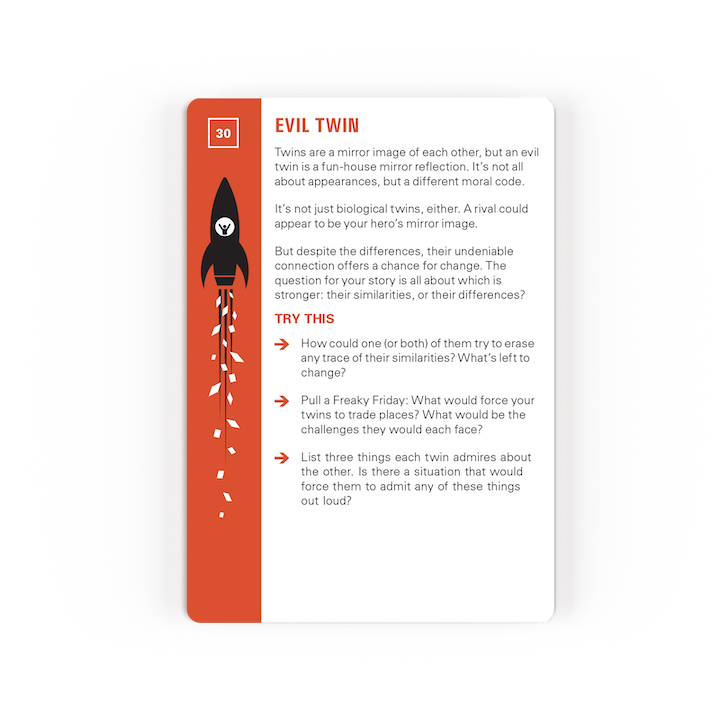
This post is based on the Writer Emergency Pack XL card #30 - Evil Twin.


